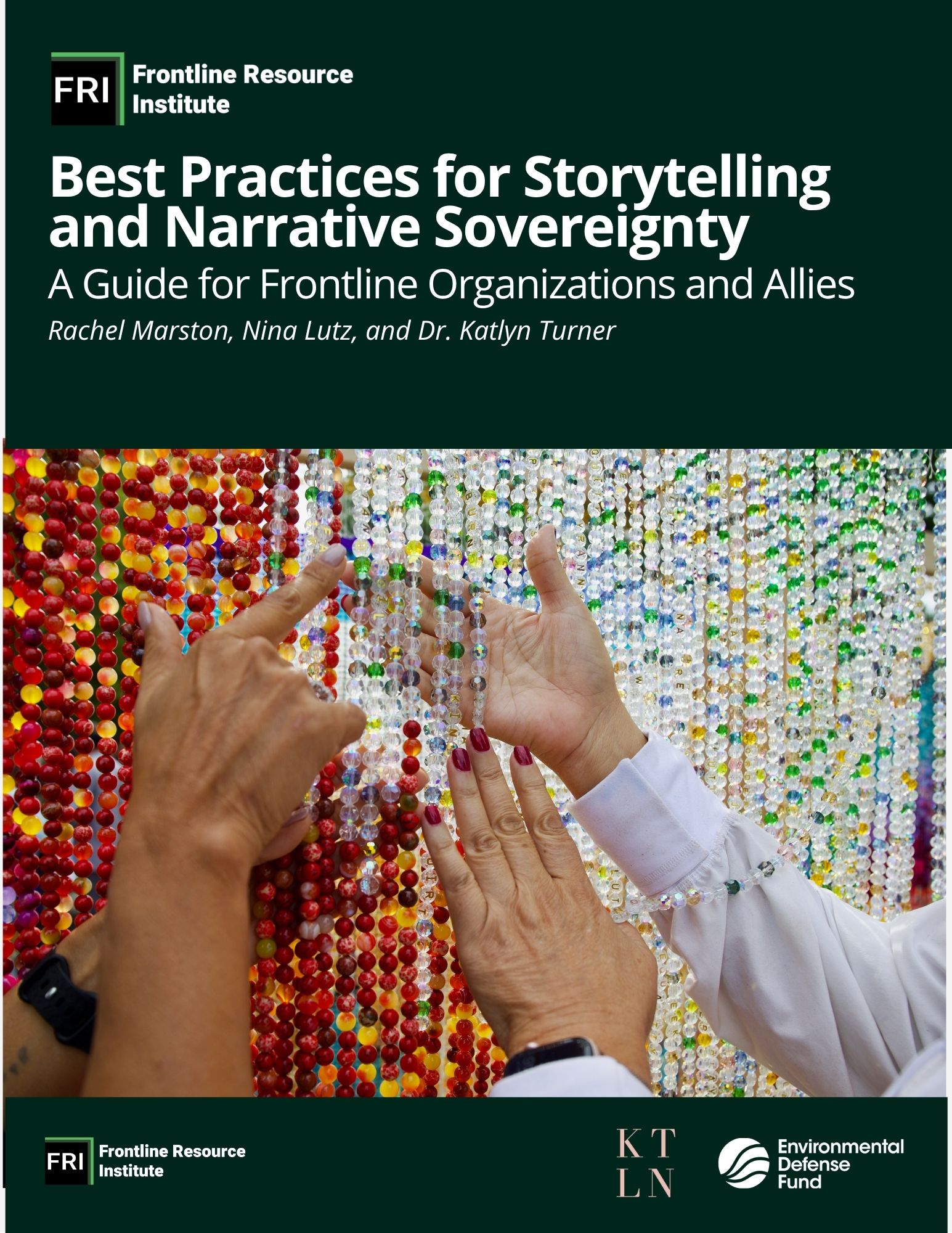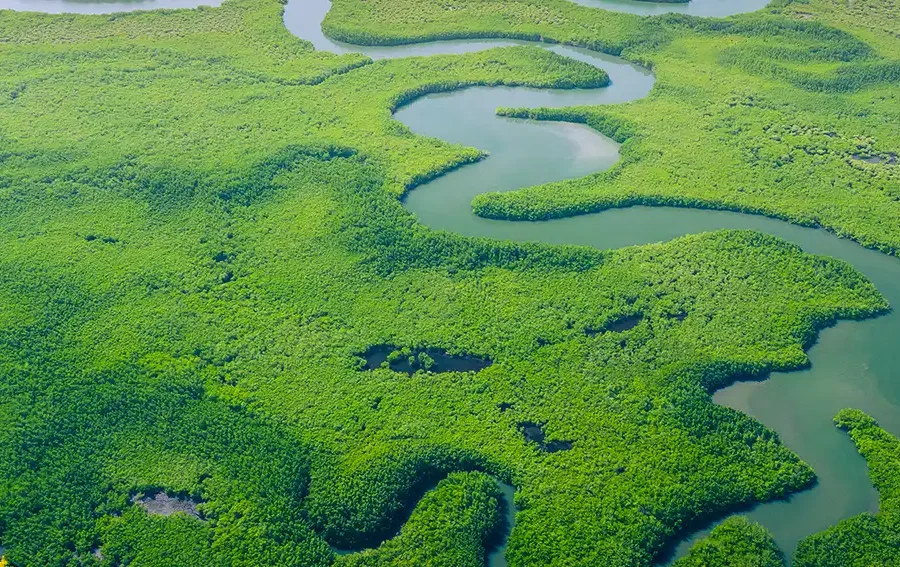
Description
This guide provides best practices and recommendations for frontline organizations to document, build, create, and deploy narratives on their own terms, as well as recommendations for external collaborators to best support frontline storytellers in creating and controlling their own narratives.
Introduction
FRI’s Storytelling and Narrative Sovereignty Guide responds to increasing awareness and attention to environmental and climate justice communities from news outlets, event organizers, content creators, policymakers, and others, especially as the impacts of climate change become increasingly severe and widespread. These institutions are eager for frontline knowledge and stories but, throughout the storytelling process, they may unintentionally create harm, erode trust, and prevent long-term investment in communities. This is particularly prevalent in an era of rapidly changing social and political norms around storytelling. As a response, a new set of storytellers is emerging to support frontline groups in telling their stories safely, authentically, and compellingly.
Created in collaboration with KTLN Consulting and based on interviews with representatives from frontline community-based organizations (CBOS) and storytellers, this guide includes:
- Best practices for frontline organizations to document, build, create, advocate, and deploy narratives on their own terms.
- Best practices for external collaborators to best support the capacity and power of communities to create and control their own narratives, document and protect lived experiences, and share knowledge and stories on their own terms.
How to Use This Guide
This guide depicts a perfect representation of a storytelling process. Because storytelling in real life is messy, the best practices, “dos” and “don’ts”, and suggested actions presented throughout this guide are principles, not prescriptions. Further, there is no “one-size-fits-all” storytelling process for frontline CBOs. We hope readers will adapt these storytelling processes and principles to their organizational contexts, using this guide to inform norms around storytelling in their work.
We also recognize that, particularly in traditionally fast-paced storytelling mediums like journalism, storytellers may be unable to implement these recommendations immediately; however, we hope storytellers collaborating with frontline communities will enact these principles where possible. Doing so can set the tone for more equitable, trusting, and relationship-based collaborations industry-wide. The recommendations presented in this guide are intended to apply to storytelling practices across mediums and platforms, but may not always reflect best practices for work with journalists, who typically operate with unique and specific professional norms. This guide is intended to serve as a living, iterative document, and we will circulate more specifics about work with journalists as they are available.


